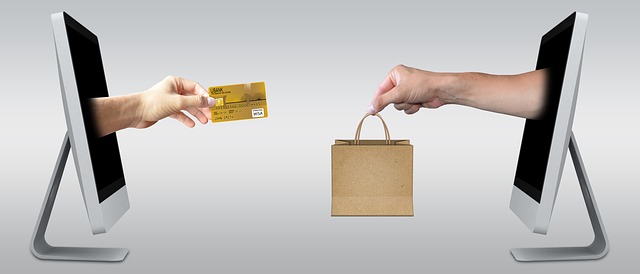Online shopping is growing by leaps and bounds but, should you purchase mobility aids online? The risks are great when it comes to buying these products from vendors that may not provide the service and support after the sale that is key in customer satisfaction with lifts, chairs, and other mobility aids.
Everyone is shopping via the internet these days, and it is tough to beat the convenience of ordering items that you need and having them delivered to the door. There are, however, some exceptions to this trend in that there are simply some things you should not buy online. While brick-and-mortar stores may seem fewer and further between, it makes the most sense to buy specific things from local merchants, vendors, and retailers for optimal satisfaction later-on, after the sale. When it comes to mobility aids, there are a lot of features and characteristics to consider that may not be effectively conveyed via the internet. This increases the incidence of dissatisfied customers which in the case of a mobility aid like a stairlift, can have life-altering consequences.
So, it comes down to this: should you purchase mobility aids online?
The answer, in short, is probably no. There are some inherent problems with online shopping that could put you at risk of being dissatisfied and disenfranchised; some of the problems found when making any online purchase could include:
- Digital payment issues.
- Unclear information pertaining to warranties or services.
- Delivery or shipping problems, including inflated costs.
- Quality concerns.
- Lack of security when shopping from some vendors.
The internet may not be the best choice when buying something as important as a mobility aid to increase accessibility. In fact, the risks of a problem implementing your new device could make this a costly, even hazardous, option in some situations.
Websites may be deceiving
It is difficult to tease-out what information is true and valid on the internet from all the sites, stores, and users; the truth is that you can never really tell a company’s reputation from a pretty website. Be skeptical when reviewing and browsing online, especially when you are planning to engage in a business transaction, make a sale, or provide personal and sensitive information to another party.
Do your due-diligence
The smokescreen that the internet provides scammers is what makes due diligence so important. Don’t give out personal information to vendors without researching the company thoroughly. If these seems excessive, consider that around 15-million Americans have their identities stolen online each year. Researching those you plan to buy things from or pay money to makes good sense.
Try before you buy
Buying your mobility aids online also eliminates the opportunity to try and test-out the available equipment and devices. How will you know which lift seat is the most comfortable or which walker is the right size? Buy from a merchant that can offer you a demonstration, too, which will help you immensely when you attempt to operate it in your own home.
Watch out for scams
While any retailer or store could potentially go out of business or close, it is not uncommon for web merchants to shut-down and then, re-open under another name. This is a great way to dodge unhappy customers or aggressive creditors.
Put a face to the name
It is easier to garner a sense of security and reassurance when making an investment, such as buying a lift or scooter, when you can talk to the sales reps in-person. You may be able to establish a relationship with your merchant, which creates a continuum of care as your mobility needs change or progress.
It can be difficult to assess the quality
What about the quality of your mobility device? It can be mighty difficult to assess quality from a picture online, without seeing it in person and trying it out for yourself. Unless you do some homework related to brands, it may be challenging to discern what you are actually buying.
What is your recourse?
Probably the biggest deterrent to buying something as important as a mobility aid online is this: what is your recourse if you are dissatisfied? Who will you call, contact, or message? If you are fortunate enough to reach someone by phone, it is possible that they are in an entirely different state, country, or continent than you are.
Work with merchants who will assess your distinct needs, first
Buying your mobility device, aid, and equipment from a brick-and-mortar business makes sense in most cases. These local vendors work hard to improve the lives of their customers – and are readily available for support later-on. As a patron, you deserve this level of service; in fact, you should demand it.
Don’t try to navigate the world of mobility aids without a reputable and trusted professional by your side. Look for local vendors that have a documented track record of satisfying their customers while providing sales, service, and support that has earned them high ratings and loyal patrons. When you are ready to consider mobility aids to increase your access and autonomy, visit the qualified team at Pacific Mobility for more information.
President, Husband, Father, Grandfather Graduate of UC Davis- Bio Sci Major- Go Aggies! Jeff has extensive experience in all of Pacific Mobility’s products and services, and specializes in accessibility products as well as stairlifts, ceiling lifts and custom wheel chairs. His hobbies include spending time with family, gardening, mountain biking, exercising and off road motorcycle riding.
24 years as Owner/President of Pacific Mobility Center – selling, installing, and servicing stairlifts, porch lifts, ceiling lifts, pool lifts, handicap ramping, specialty wheelchairs, scooters, power wheel chairs, and other power mobility devices
Certified Environmental Access Consultant since 2008
Licensed General Contractor since 1998
Certified Aging in Place Specialist since 2016
Board Member for Home Access Professionals
Member of Association of Members of the Accessibility Equipment Industry (AEMA)




